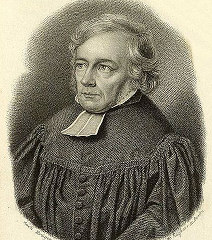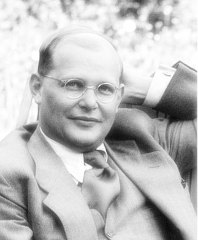 This edition of In the Nick of Time was originally published on May 26, 2006.
This edition of In the Nick of Time was originally published on May 26, 2006.
Last weekend I had occasion to attend a commencement exercise at the University of St. Thomas in St. Paul, Minnesota. St. Thomas is, as you might guess, a Catholic institution of higher learning. About half of the students are non-Catholics, however, and the professors are all over the ideological map. Even the theology department has room for liberal Protestant feminism.
At each commencement, the university designates one senior as “Tommie of the Year.” This student, selected for academics, leadership, and character, is given the opportunity to deliver one of the two main addresses at the commencement ceremony. The “Tommie of the Year” for 2006 was Mr. Benjamin Kessler, a football star, philosophy major, and student in the undergraduate seminary affiliated with the University of St. Thomas.
For his commencement address, Kessler chose to focus on the profound selfishness that pervades American society. He began by referencing an episode in which a campus activity had turned into a food fight that had to be broken up by the St. Paul police. Then he named a campus controversy in which some unmarried couples (both hetero- and homosexual, including some faculty couples) protested a ban on cohabitation during official university trips. Finally, he branded birth control as a selfish practice that undermines the best interests of women, men, and children.
When Kessler talked about the food fight, the atmosphere of the commencement became noticeably charged. When he labeled the protests against cohabitation as a form of selfishness, he began to get catcalls from the crowd, and several professors and students exited the stadium. When he stated that birth control was selfish, much of the assembly erupted into derision. Calls rang from across the stadium to “pull him down,” and “get him off the stage.” Factions within the crowd made repeated attempts to drown out Kessler’s remarks with shouts and jeers. Someone even touched off a siren.

 From
From  This edition of In the Nick of Time was originally published on May 26, 2006.
This edition of In the Nick of Time was originally published on May 26, 2006.
Discussion